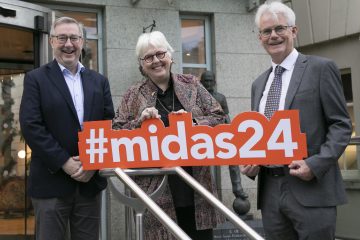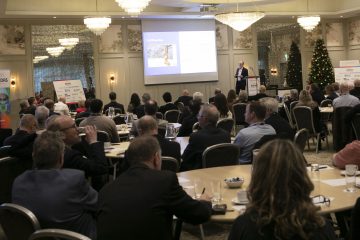“Want to get rich? You need to study engineering.” This was the headline that appeared in a column I wrote for The Irish Times last June. The headline was not mine – as we know, it is not even true. However, it did its job, attracting readership and lively feedback that has continued over the intervening months.
The piece began with reference to another headline that had recently appeared in the press: “What degree should you study to become a billionaire? The result might surprise you!” In fact it had not been at all surprising to read that a study of the Forbes list of the world’s wealthiest, like previous studies of top CEOs, revealed that their most common field of study, by a considerable margin, was engineering.
For these individuals and many others, an engineering education, designed to deliver creative, versatile and numerically adept problem solvers into the most dynamic sectors of the economy, was a springboard to success. More broadly, there are countries that have built and sustained much of their wealth and reputation on a bedrock of engineering talent. They are rightly proud of this resource, they are aware of its importance and they work to strengthen it.
We in Ireland (and I write here about the Republic of Ireland – the situation in Northern Ireland is somewhat different) have not traditionally thought of ourselves as an engineering nation. Is it time we started?
The country’s development in sectors such as electronics, pharmaceuticals, software and medical devices since the 1980s has been nothing short of extraordinary, taking us from a standing start to an envied role on the world stage. At the heart of all of these sectors are engineers: designing, creating and innovating. They do this in multinational and indigenous enterprises from Leixlip to Westport to Ringaskiddy, and in the heart of Dublin.
Their activity was a substantial contributor to our period of unprecedented economic growth, and then to sustaining the economy through more recent years. From the Quark chip, the first Intel product developed from inception in Ireland, to Dairymaster’s fully computerised milking parlour, the impact of their innovation is gathering pace.
Irish engineers shine in the profession internationally, where the requirement for technical knowhow, creativity and cross-cultural people skills seems to play to national strengths. David O’Reilly of Chevron and Martin Naughton of Glen Dimplex, both engineers, are among the most successful business leaders to have emerged from this country.
Analog Devices, one of the first multinationals to establish a significant presence in Ireland, now has a University of Limerick engineering graduate as president and CEO. Many more Irish engineers have ascended to the top tier within the world’s most successful companies. Others are the driving forces behind some of our most successful start-ups and SMEs.
Link to source article below:
www.engineersjournal.ie/2015/11/10/is-it-time-for-ireland-to-think-of-itself-as-an-engineering-nation/
2025
MIDAS Ireland welcomes the announcement of ‘Silicon Island’: A National Semiconductor Strategy.
We are delighted that Ireland’s well established and very successful semiconductor is being recognized as strategically important with a Semiconductor Advisory Council to be established to provide the necessary future leadership. The strategy identifies many Read more…

